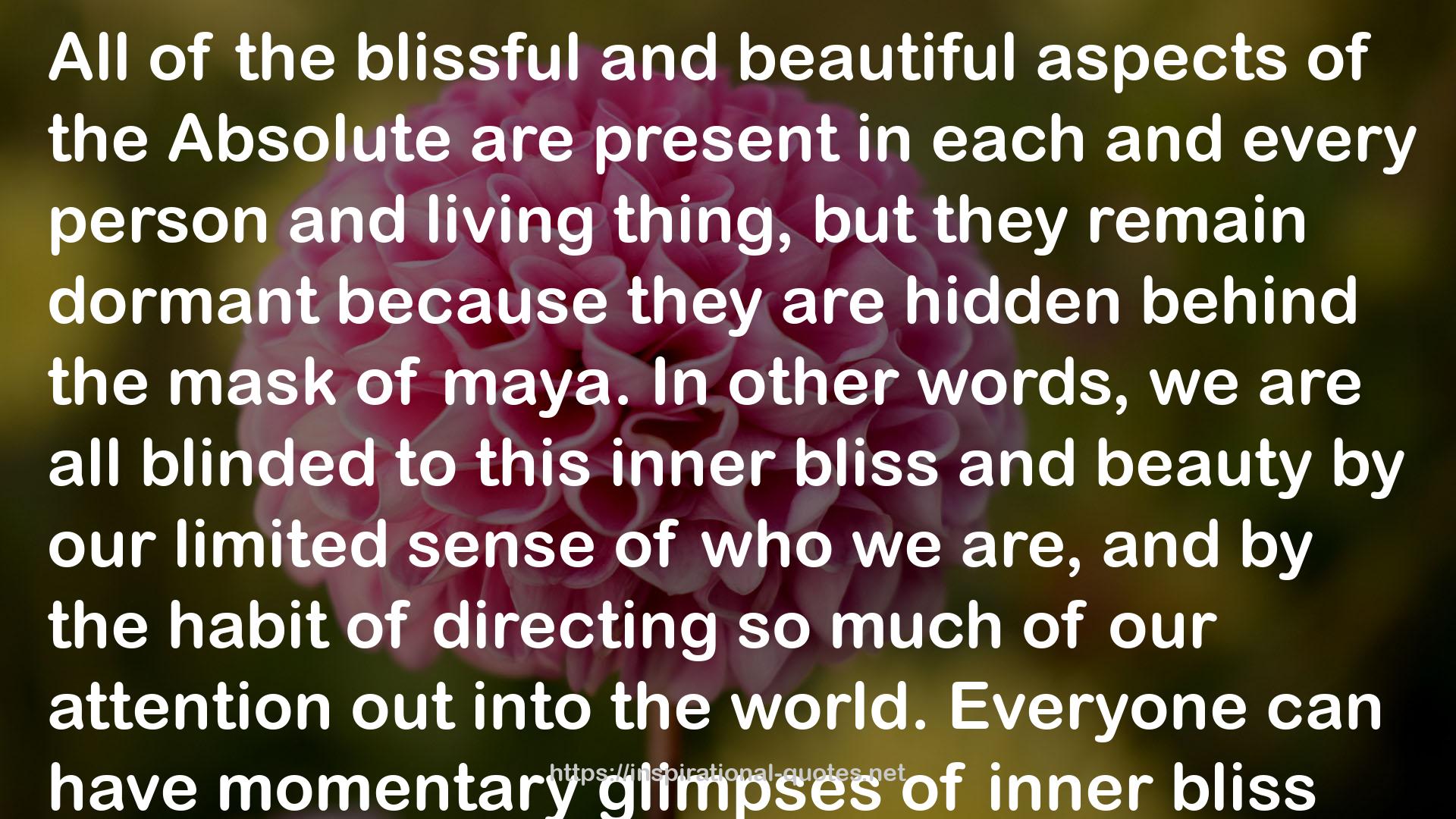" All of the blissful and beautiful aspects of the Absolute are present in each and every person and living thing, but they remain dormant because they are hidden behind the mask of maya. In other words, we are all blinded to this inner bliss and beauty by our limited sense of who we are, and by the habit of directing so much of our attention out into the world. Everyone can have momentary glimpses of inner bliss when they experience something that is extremely pleasing to the senses and the mind. But usually these situations are fleeting and simply leave a person unfulfilled and longing for more. They then pursue the outer object in an attempt to rediscover the blissful state, not realizing that the source of bliss is within and need not be attached to an outer stimulus at all. This inner beauty can be discovered and contacted at will through simply turning our attention within, and through the various practices outlined in this yoga.
— B. N. Pandit, Specific Principles of Kashmir Shaivism (3rd ed., 2008), p. 123. "
Tags: blindedn.directingblissfulB.dormantKashmirShaivismKashmir ShaivismSpecific Principles of Kashmir Shaivism
Image for Quotes
